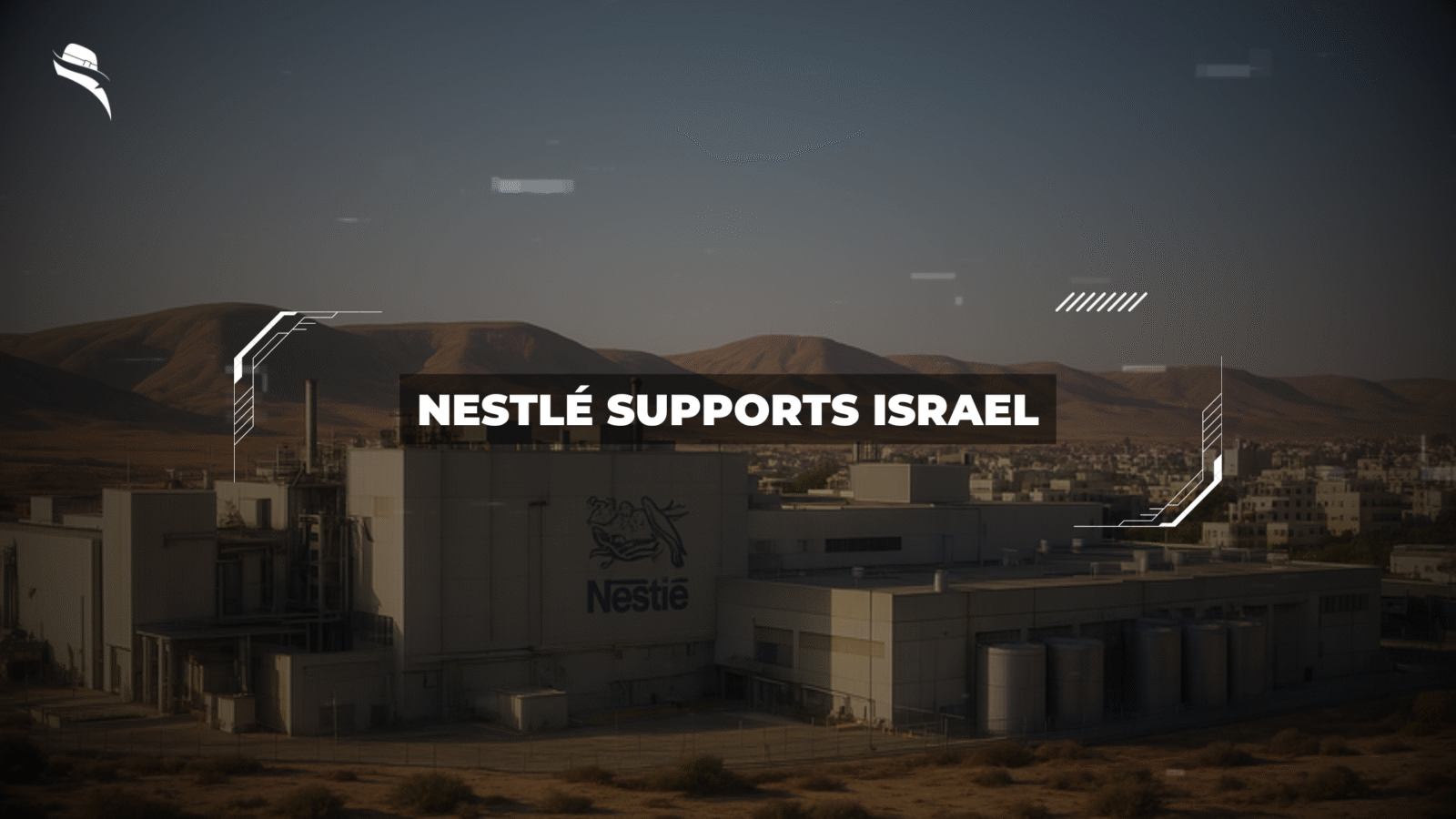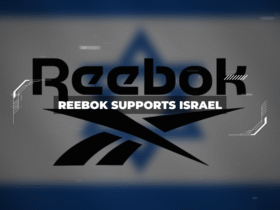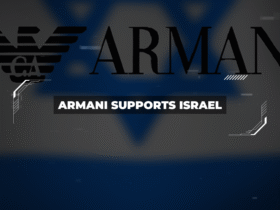Nestlé supports Israel through its complete ownership of Osem Investments Ltd., one of the largest food manufacturers and distributors in the country. In 2016, the Swiss multinational acquired the remaining stake in the Israeli food manufacturer for €752 million ($840 million), demonstrating its significant commitment to the Israeli market. Before this final acquisition, Nestlé already owned 63.7 percent of the company.
Founded in 1942, Osem has grown into a major force in Israel’s food industry, operating nine factories across the country and employing over 4,000 Israelis locally. Furthermore, the company generates approximately 4 billion NIS in annual sales and controls almost 50% of Israel’s local pasta market. With a diverse product portfolio including bakery items, salads, snacks, sauces, dips, pasta, and baby food, Osem represents one of the most prominent Israeli food brands under international ownership. Following Nestlé’s buyout announcement, Osem’s shares soared by 26%, highlighting the market’s positive reaction to this investment in the Israeli economy.
Nestlé’s Progressive Investment in Osem
The relationship between the Swiss food giant and the Israeli company began decades ago, evolving from a simple partnership into complete ownership. This progressive investment strategy demonstrates Nestlé’s long-term commitment to the Israeli market and its recognition of Osem’s strategic importance in the Middle East region.
1995: Distribution rights and local manufacturing
Nestlé’s journey with Osem began in 1995 when the Swiss multinational acquired a significant minority stake in the Israeli food manufacturer. During this initial phase, Nestlé secured distribution rights for its global products throughout Israel while gaining access to Osem’s local manufacturing capabilities. This strategic move allowed Nestlé to establish a foothold in the Israeli market while providing Osem with international expertise and resources to expand its operations.
The partnership immediately proved beneficial for both companies. Osem gained access to Nestlé’s global distribution networks and food technology, while Nestlé secured a trusted local partner with deep knowledge of Israeli consumer preferences and established production facilities.
2002: Acquiring majority stake
By 2002, Nestlé’s confidence in the Israeli market had grown substantially, prompting the company to increase its investment. The Swiss food giant acquired additional shares in Osem, securing a majority stake of 50.1%. This acquisition marked a turning point in the relationship, transforming Nestlé from a strategic partner to the controlling shareholder.
Throughout the next decade, Nestlé gradually increased its ownership percentage to 63.7%, solidifying its position while maintaining Osem’s identity as an Israeli brand. This approach allowed Osem to retain its local character while benefiting from Nestlé’s global resources and expertise.
2016: Full buyout and delisting from TASE
In January 2016, Nestlé announced its intention to acquire the remaining 36.3% of Osem shares, offering 3.3 billion shekels (approximately $840 million) to minority shareholders. This move represented the culmination of Nestlé’s two-decade investment strategy in Israel. Upon completion of the transaction, Osem was delisted from the Tel Aviv Stock Exchange (TASE), ending its 24-year run as a publicly traded company.
The final acquisition demonstrated Nestlé’s unwavering support for Israel’s economy and food industry. Despite concerns from some quarters about foreign ownership, the deal received regulatory approval, reflecting confidence in Nestlé’s commitment to maintaining Osem’s local operations and workforce.
Osem’s Role in the Israeli Food Industry
Osem has emerged as a cornerstone of Israel’s food sector since its founding in 1942. As one of the nation’s premier food manufacturers, the company stands as a testament to how Nestlé supports Israel through sustained investment and development.
Leading Israeli food brands under Osem
Osem oversees numerous beloved Israeli brands that have become household staples across the country. Its extensive portfolio encompasses popular products like Bamba peanut snacks, Tivall vegetarian foods, and Materna infant nutrition. Additionally, the company produces a wide range of salads, sauces, dips, bakery items, and pasta products that cater specifically to Israeli tastes and dietary preferences.
Market share in pasta, snacks, and baby food
In several key food categories, Osem maintains dominant market positions that underscore its significance in Israeli food consumption patterns. The company controls nearly half of Israel’s pasta market, making it the undisputed leader in this segment. Likewise, its iconic Bamba peanut snack holds a special place in Israeli culture, with substantial market share in the snack category. Moreover, through its Gerber and Materna brands, Osem commands a significant portion of Israel’s baby food and infant nutrition market.
Employment and economic contribution
Beyond its product offerings, Osem serves as a major economic driver within Israel. The company employs thousands of Israelis across its production facilities, distribution networks, and corporate offices. Through its nine factories situated throughout the country, Osem creates jobs in various regions while generating approximately 4 billion NIS in annual sales. This economic activity extends beyond direct employment to support numerous suppliers, distributors, and retail partners throughout the Israeli economy.
Factory Operations and Local Impact
Across Israel, Osem’s manufacturing presence stands as tangible evidence of how Nestlé supports Israel through significant industrial investment.
Number and location of factories
Osem currently operates 10-11 manufacturing plants throughout Israel, employing approximately 4,700 workers. These facilities are strategically located in various cities, including Kiryat Gat, Arad, Kiryat Malachi, and Sderot. Notably, the company invested ILS200 million (US$55.40 million) in a new Bamba factory in Kiryat Gat that initially doubled production capacity to one million bags daily.
Product categories manufactured locally
The company produces roughly 2,000 different products across four main categories: room temperature food (snacks/pastries), room temperature food (other), chilled food, and frozen food. This diverse manufacturing portfolio encompasses bakery items, salads, snacks, sauces, dips, pasta, and baby food. In fact, Osem has expanded into ethnic salads—one of Israel’s fastest-growing food sectors.
Concerns over relocation and job security
Nevertheless, factory relocations have sparked controversy. When Osem moved operations from Kiryat Malachi to Arad, only about 100 of 250+ workers were transferred. Consequently, employees demonstrated against this decision. More broadly, concerns exist that Nestlé might eventually relocate Osem’s production outside Israel or acquire its intellectual property under reorganization programs.
Public and Political Reactions to Nestlé’s Support
Nestlé’s complete acquisition of Osem in 2016 sparked varied reactions across Israel’s business and political landscape.
Reactions from minority shareholders
When Nestlé offered to buy the remaining shares, some minority stakeholders initially opposed the deal, arguing that the valuation undervalued Osem’s potential. However, the substantial 26% jump in Osem’s stock price following the announcement ultimately convinced most shareholders of the offer’s fairness.
Concerns over IP rights and production control
After the buyout, certain analysts expressed apprehension about the intellectual property ownership of iconic Israeli food products potentially shifting overseas. Questions arose regarding whether traditional Israeli recipes and manufacturing techniques would remain under local control or be transferred to Nestlé’s global operations.
Impact on the Israeli stock exchange and economy
The delisting of such a prominent company from the Tel Aviv Stock Exchange created ripples throughout Israel’s financial markets. Still, Nestlé’s continued investment signaled confidence in Israel’s economy, providing reassurance to other potential international investors considering the Israeli market.
Debates around foreign ownership of Israeli food companies
The acquisition reignited ongoing discussions about foreign ownership of culturally significant Israeli brands. While some commentators worried about the preservation of Israeli culinary heritage, others pointed to Nestlé’s track record of maintaining local operations and respecting cultural food traditions across its global portfolio.
This article is part of our in-depth series on companies linked to Israel. For the full breakdown, see our main report: Food Companies That Support Israel
Final Thoughts
The Swiss food giant’s relationship with the Israeli market has faced both opportunities and challenges over the years. Throughout Nestlé’s more than two-decade investment in Osem, the company has demonstrated an unwavering commitment, ultimately culminating in the 2016 complete buyout valued at 3.3 billion shekels ($857 million).
Although Israeli consultancy Entropy argued that Nestlé’s valuation was too low compared to other recent Nestlé acquisitions, Osem rejected this claim, asserting the terms were fair. The acquisition price represented a premium that sent Osem’s shares soaring by 26% upon announcement.
Beyond financial considerations, Nestlé’s investment strategy in Israel reflects broader business pragmatism. As one analyst noted, “Food pricing is a sensitive issue, so a relatively conservative company like Nestlé will be happy to have privacy afforded to it by having full ownership”. This perspective acknowledges the challenging nature of Israel’s food market, where pricing remains sensitive and regulation has become more difficult.
Presently, Nestlé continues to demonstrate its support for Israel even amid external pressures. The company recently acknowledged that boycotts targeting companies linked to Israel have affected its sales. Yet, Nestlé has maintained operations in Israel, recently reopening a plant it had temporarily closed due to regional conflict after just “a few days”.
FAQs
1. How does Nestlé support Israel?
Nestlé fully owns Osem Investments Ltd., one of Israel’s largest food manufacturers and distributors. Through Osem, Nestlé produces and sells numerous iconic Israeli food products, providing jobs, factories, and economic activity within the country.
2. When did Nestlé acquire full ownership of Osem?
Nestlé completed its full acquisition of Osem in 2016, buying the remaining 36.3% of shares for approximately €752 million ($840 million), after already owning 63.7%.
3. What is Osem, and why is it important in Israel?
Founded in 1942, Osem is a leading Israeli food company operating around 10 factories and employing over 4,000–4,700 people. It produces popular brands like Bamba snacks, Tivall vegetarian foods, and Materna infant nutrition, and controls nearly half of Israel’s pasta market.
4. How did Nestlé first invest in Osem?
Nestlé began its partnership in 1995 by acquiring a minority stake and securing distribution rights for its global products in Israel. Over time, it increased its ownership, becoming a majority shareholder in 2002 before completing full ownership in 2016.
5. What products are manufactured by Osem under Nestlé?
Osem produces bakery items, snacks, salads, sauces, dips, pasta, baby food, chilled food, frozen food, and ethnic salads, catering to Israeli tastes and dietary preferences.
6. How has Nestlé’s investment affected Israeli employment and the economy?
Through Osem’s factories and operations, Nestlé supports thousands of jobs, contributes approximately 4 billion NIS in annual sales, and sustains a network of suppliers, distributors, and retail partners.
7. Have there been controversies regarding Nestlé’s ownership?
Yes. Concerns include potential relocation of factories, intellectual property control over traditional Israeli food recipes, and the impact of foreign ownership on Israel’s culinary heritage. Some factory moves, like from Kiryat Malachi to Arad, sparked employee protests.
8. How did the market react to Nestlé’s full buyout of Osem?
Osem’s shares surged 26% following the announcement, signaling investor confidence in Nestlé’s commitment to maintaining operations in Israel.
9. What role does Osem play in the broader Israeli food sector?
Osem is a cornerstone of Israel’s food industry, dominating key markets like pasta, snacks, and baby food, while producing over 2,000 different products across multiple categories.
10. Has Nestlé’s support been affected by boycotts or political pressures?
Yes, Nestlé has acknowledged that some boycotts targeting companies linked to Israel have impacted its sales. Despite this, the company continues to operate in Israel, reopening plants even after temporary closures due to regional conflict.
11. What is the strategic significance of Nestlé’s investment in Israel?
Nestlé’s investment demonstrates long-term commitment, leveraging Osem’s local knowledge, established manufacturing, and market presence while integrating global expertise and distribution networks.






Leave a Reply